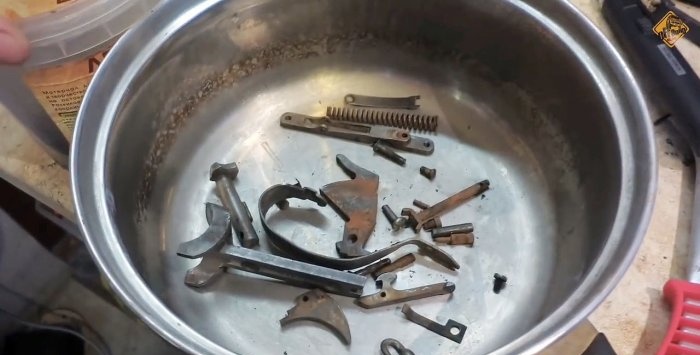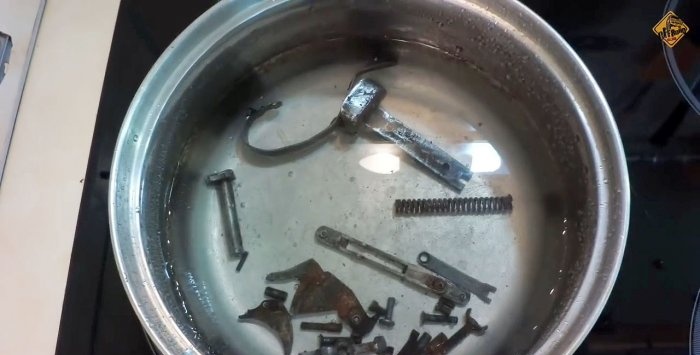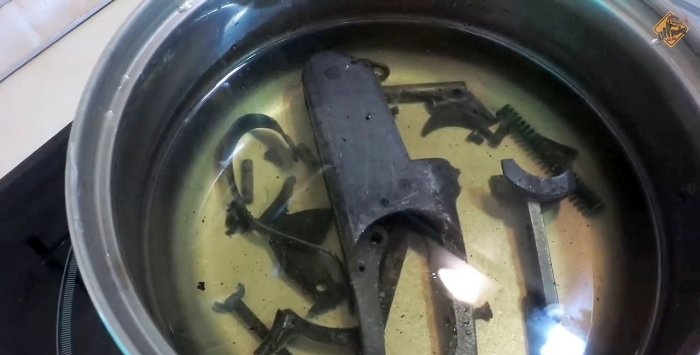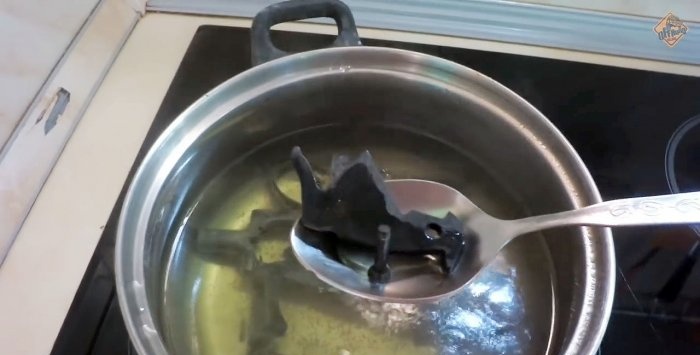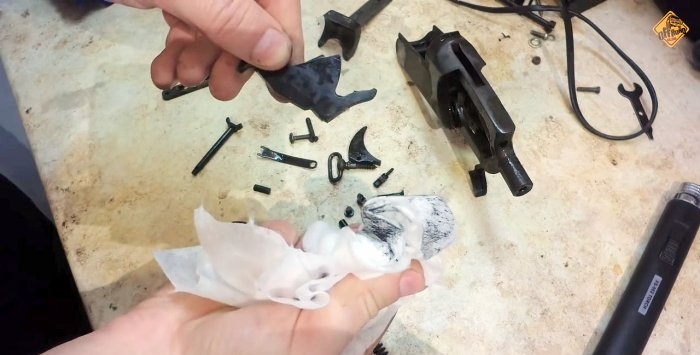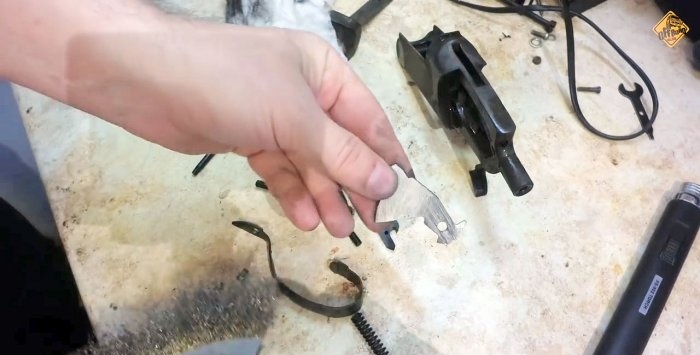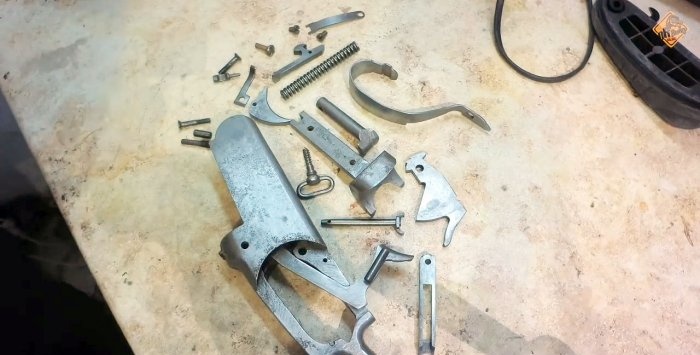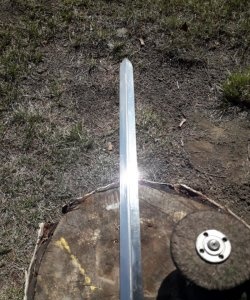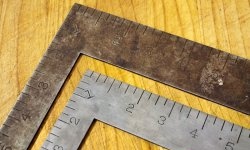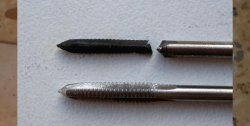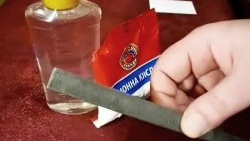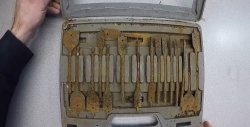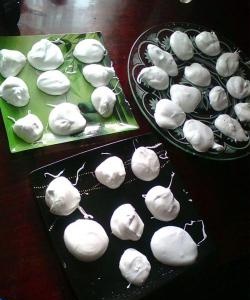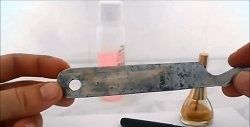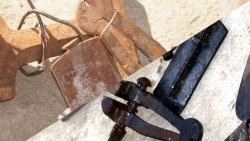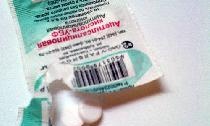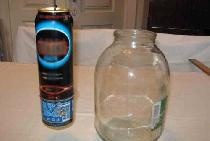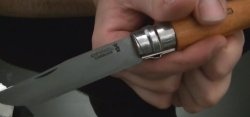An accelerated method of removing rust with citric acid solution
Many have tried to remove rust with acid solutions, usually leaving the part in the bath overnight. This is an effective method, but time-consuming. Let's look at how you can remove rust faster.
Rusty parts are lowered into a pan and filled with water. The liquid should cover them completely, but it should not be added too much so as not to overuse the acid. The pan is placed on the fire and brought to a boil.
After boiling, citric acid is poured into the bath. It will take about 2-3 tbsp. spoons per 1 liter. Excessive amounts of acid can damage delicate threaded workpieces.
The acid dissolves in boiling water even without stirring. The solution with rusty parts is left on the fire for 5 minutes.
If the surfaces are heavily corroded, you will have to wait longer. The solution will immediately begin to dissolve the rust, so it will become cloudy. In this case, the parts will be covered with a black oxide film, which is not scary.You need to boil in acid until the deep rusty scale comes off.
Immediately after boiling, the parts can be removed from the solution. If they have fine threads, then it is better not to overdo it, leaving them in acid until they cool.
Instead of rust, a weak oxide film will appear on the removed parts. It must be removed using a metal brush. All surfaces should be completely cleaned to a matte shine. The black coating comes off easily from the solution immediately after removal. If you leave the parts for a long time, it will become more difficult to clean.
Each cleaned part must be wiped dry to prevent rust from returning. Ideally, it should be painted or blued.
Cleaning rust in a boiling solution is many times faster than settling in cold acid. Citric acid does not smell like vinegar, so the work can be done in the kitchen. After treatment, the surfaces will be covered with potholes. This has nothing to do with the acid, it just exposes the whole metal. Potholes are caused by deep penetration of rust. However, if the acid concentration is too high or the parts are kept in it for too long, the living metal may begin to corrode. To prevent this from happening, you need to follow the recommendations.
Tools and materials:
- water;
- lemon acid;
- pot;
- metal brush;
- dry rags.
How to remove rust quickly
Rusty parts are lowered into a pan and filled with water. The liquid should cover them completely, but it should not be added too much so as not to overuse the acid. The pan is placed on the fire and brought to a boil.
After boiling, citric acid is poured into the bath. It will take about 2-3 tbsp. spoons per 1 liter. Excessive amounts of acid can damage delicate threaded workpieces.
The acid dissolves in boiling water even without stirring. The solution with rusty parts is left on the fire for 5 minutes.
If the surfaces are heavily corroded, you will have to wait longer. The solution will immediately begin to dissolve the rust, so it will become cloudy. In this case, the parts will be covered with a black oxide film, which is not scary.You need to boil in acid until the deep rusty scale comes off.
Immediately after boiling, the parts can be removed from the solution. If they have fine threads, then it is better not to overdo it, leaving them in acid until they cool.
Instead of rust, a weak oxide film will appear on the removed parts. It must be removed using a metal brush. All surfaces should be completely cleaned to a matte shine. The black coating comes off easily from the solution immediately after removal. If you leave the parts for a long time, it will become more difficult to clean.
Each cleaned part must be wiped dry to prevent rust from returning. Ideally, it should be painted or blued.
Cleaning rust in a boiling solution is many times faster than settling in cold acid. Citric acid does not smell like vinegar, so the work can be done in the kitchen. After treatment, the surfaces will be covered with potholes. This has nothing to do with the acid, it just exposes the whole metal. Potholes are caused by deep penetration of rust. However, if the acid concentration is too high or the parts are kept in it for too long, the living metal may begin to corrode. To prevent this from happening, you need to follow the recommendations.
Watch the video
Similar master classes
Particularly interesting
Comments (2)

